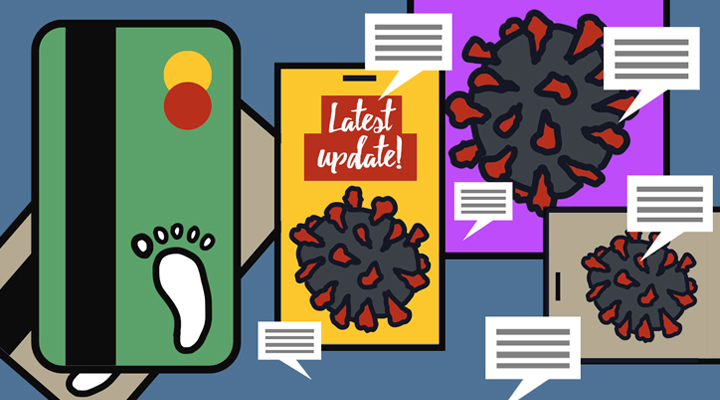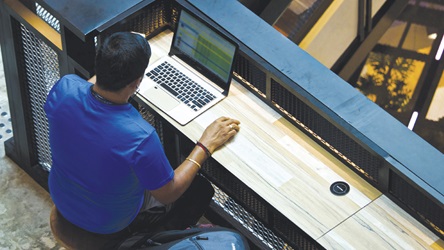Instruction Manual: Telecommuting And Working From Home

Get Wired
Conference call hygiene
Tips to ensure that everyone’s heard and gets their say
Consider who needs to attend the call
Only participants who need to provide input should attend the conference call. Other team members can opt to listen to a recording of the call.
Video or audio?
Do not feel obligated to do a video call. Audio calls can work just as well, especially if you already know the other meeting participants.
Show up early
Whether it’s a video or audio call, aim to be ready for the call at least 5 minutes before the scheduled time so that any technical issues can be resolved before the call starts proper.
Check your space and equipment
Ensure that your device’s speakers, microphone and camera are working well. If the call is a video call, position yourself in good lighting and with an appropriate background. Avoid noisy locations or spaces that create echoes – choose a room with soft furnishings like carpets and curtains to prevent sound that bounces.
Mute your microphone when you’re not speaking
Every conference call benefits from having a leader. At the start of the call, the leader should remind everyone of the meeting agenda, for everyone to speak in turns and for participants to mute their microphones unless they are speaking.
Create a visual anchor
Use screen sharing for presenting slides, documents or websites that can serve as a common visual reference for all participants. To do this in Skype (and most teleconferencing software), you can toggle between an audio-only or a video call using the camcorder button in the middle. To present slides or share your screen, click the 'Share screen' button or find the options under the 'More' menu.

To share a document, image or other files with meeting participants, go to the Skype chat screen and click the second button from right to upload the file.

Jargon Watch
Tech Jargon
Infodemic = An overabundance of information that makes it hard for people to find trustworthy sources and reliable guidance when they need it. In February 2020, the World Health Organization called the COVID-19 outbreak and response a “massive infodemic”.
Carbonomics = A value system in which financial transactions are informed by an individual’s carbon footprint score. Examples of related products include credit cards that cut off credit spending when it reaches a carbon limit, rather than a financial limit, or simply track a user’s carbon footprint without imposing a carbon limit.

Public Service Jargon
SEP = Self-employed persons.
LOA/SHN = Leave of absence/Stay-home notice. A requirement to go on a leave of absence from work or stay home at all times for 14 days, during the COVID-19 outbreak. Learn more at the Ministry of Manpower (MOM)’s website.
Say It Like This
Segue: The word (which means a smooth transition from one part, topic, activity, etc, to another) is pronounced with two syllables as “seg-way”, like the brand name for the two-wheeled personal mobility device.

In Numbers
Three advantages of working remotely
Good for recruitment and retention
- Not offering flexible work arrangements played the most significant role in a firm’s resignation rate, according to findings by the MOM (Conditions of Employment 2018 report).
- 54% of office workers say they would leave their job for one that offers flexible work time, according to a Gallup research study.
- 51% of office workers say they would switch to a job that allows them flextime.
Good for being engaged at work
- According to Gallup’s research, those who work remotely 60% to 80% of the time are also the most likely to strongly agree that their needs related to development and relationships are being met.
Good for the environment
- 92 million fewer miles
The amount saved by Xerox’s remote workers in 2015 - This reduced carbon dioxide emissions by nearly 41,000 metric tons
- POSTED ON
Mar 20, 2020
-
Deep Dive
Singapore Agenda: The End Of Retirement?
-
Deep Dive
Singapore Agenda: The End Of Print?









